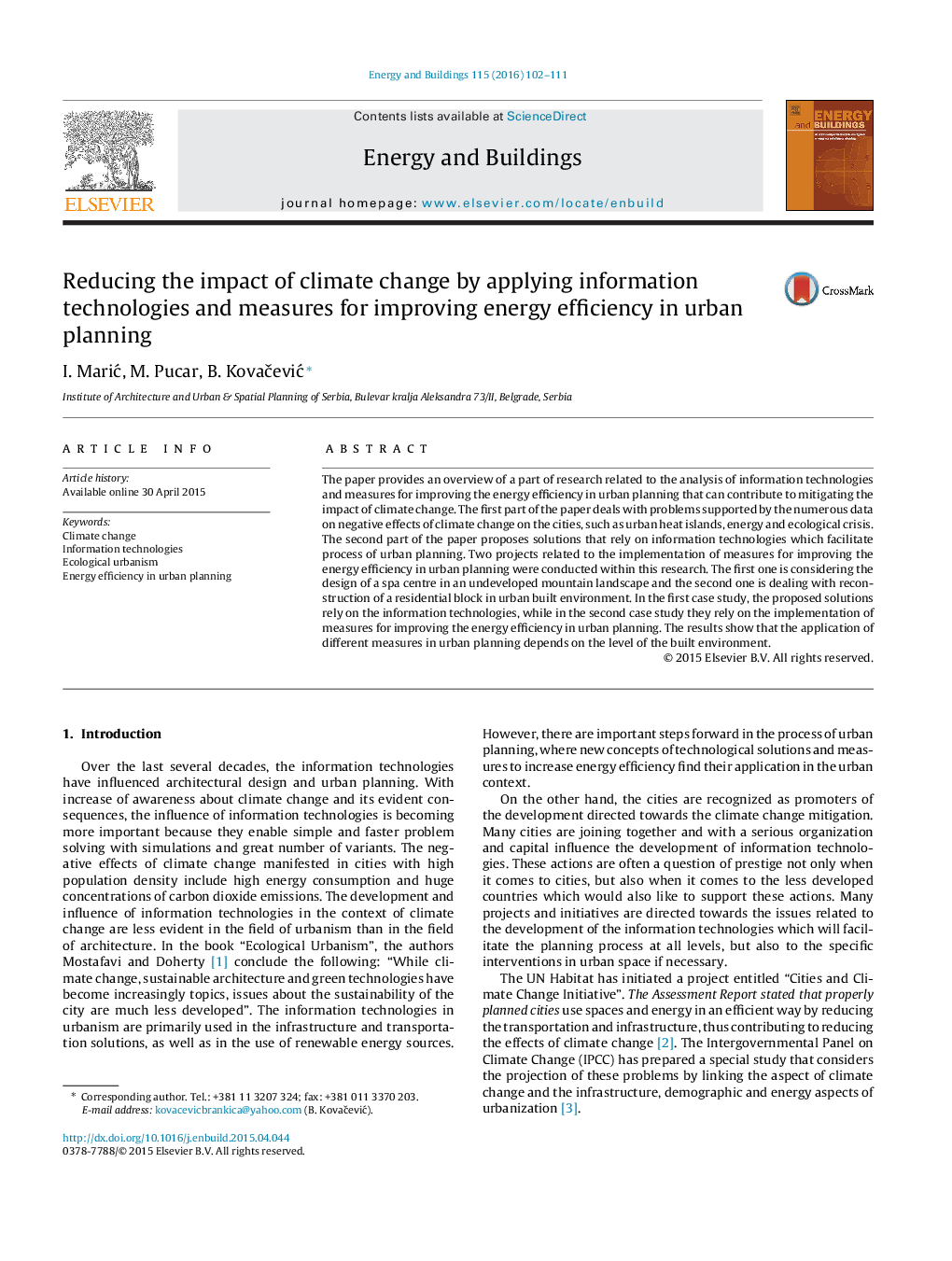| Article ID | Journal | Published Year | Pages | File Type |
|---|---|---|---|---|
| 262246 | Energy and Buildings | 2016 | 10 Pages |
•Solutions that rely on information technologies in urban planning are proposes.•Two projects were analyzed-in undeveloped landscape and in urban built environment.•The measures in urban planning depends on the level of the built environment.•The planning in the field of energy efficiency depends on the quality of data.•Stages of work are different for new building and reconstruction.
The paper provides an overview of a part of research related to the analysis of information technologies and measures for improving the energy efficiency in urban planning that can contribute to mitigating the impact of climate change. The first part of the paper deals with problems supported by the numerous data on negative effects of climate change on the cities, such as urban heat islands, energy and ecological crisis. The second part of the paper proposes solutions that rely on information technologies which facilitate process of urban planning. Two projects related to the implementation of measures for improving the energy efficiency in urban planning were conducted within this research. The first one is considering the design of a spa centre in an undeveloped mountain landscape and the second one is dealing with reconstruction of a residential block in urban built environment. In the first case study, the proposed solutions rely on the information technologies, while in the second case study they rely on the implementation of measures for improving the energy efficiency in urban planning. The results show that the application of different measures in urban planning depends on the level of the built environment.
